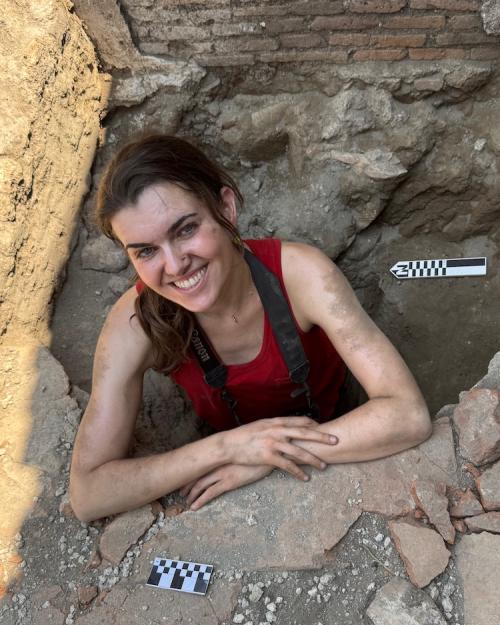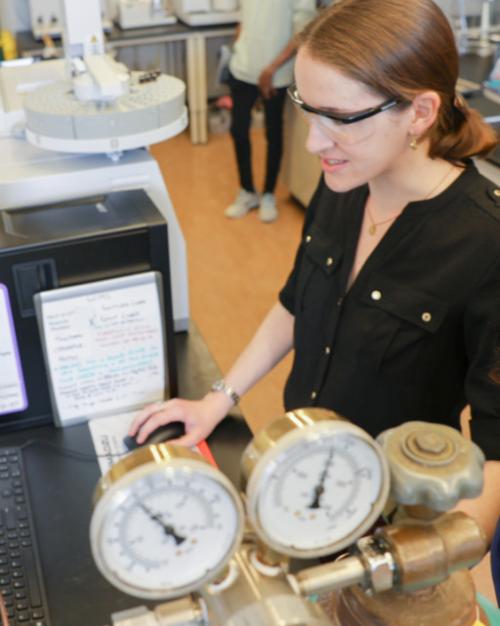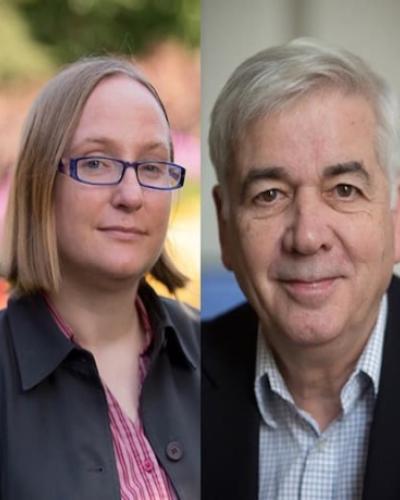Courtney Roby, Associate Professor of Classics, has been selected as a 2019 recipient of the Stephen H. Weiss Award for excellence in undergraduate teaching. A total of eight faculty members from a variety of disciplines received Weiss Awards this year, which Cornell President Martha E. Pollack described as “the highest honors Cornell confers for superb teaching.” (Read more about all eight recipients here.)
Roby joined the Cornell Classics faculty in 2011, where her research focuses on ancient scientific and technical texts. Her teaching covers a broad spectrum, from traditional Latin prose courses and literature surveys to unconventional courses which encourage interdisciplinarity between Classics and STEM, such as “Data Corruption’s Deep History” and “The Technology of Ancient Rome”.
Roby’s teaching methods offer students the opportunity to approach the study of the classical world in innovative ways. One course on Roman technology brought students to a football field to try their hand at using an ancient surveying tool called a groma, while another on ancient medicine included a hands-on pharmacology lab. “The Art of Math,” which Roby co-taught with Andrew Hicks, Associate Professor of Music and Medieval Studies, allowed students to work with 3D printing technology. Roby and Hicks’ course received an Innovative Teaching and Learning Award from the Center for Teaching Innovation in 2018 (see more about the course here).
“Receiving the Weiss award is the proudest moment of my professional life so far,” says Roby. “It’s a wonderful feeling to be able to make the ancient world come alive for students through hands-on experimental work, and to highlight the intersections between STEM as they know it and its long history in the ancient Mediterranean and beyond.”
Jeffrey Rusten, Professor of Classics, was awarded funding from Cornell University Library’s Grants Program for Digital Collections in Arts and Sciences for his Lexicon Platonicum project. Rusten’s project was one of five selected by the Arts and Sciences Visual Resources Advisory Group. (Read about the other projects here.)
The Lexicon Platonicum is an online version of the 19th century lexicon written by Friedrich Ast. It is modeled on Rusten’s Thucydidean lexicon, which allows users to search items and read the text in its entirety. Each lexical item (see entry for ἀγαθός ‘good’) lists an extensive definition with quotes from the text, frequencies and occurrences sorted by context, semantic grouping, bibliography, and, in some cases, even images.
The goal with the Lexicon Platonicum is to create a user-friendly, intuitive, and comprehensive version of Ast’s 19th century work. The online lexicon significantly augments and edits Ast’s references, while making it more accessible. In the study of Plato, where the meaning of each word is so carefully analyzed, this lexicon can be a powerful tool for philosophers and philologists.
The project will continue to develop long term, but Rusten hopes to create similar databases for Euripides and Aristophanes as well. The four lexica together will cover a wide range of genres (history, philosophy, tragedy, and comedy) and serve as a valuable representation of Attic Greek literature from the 5th century BCE.





